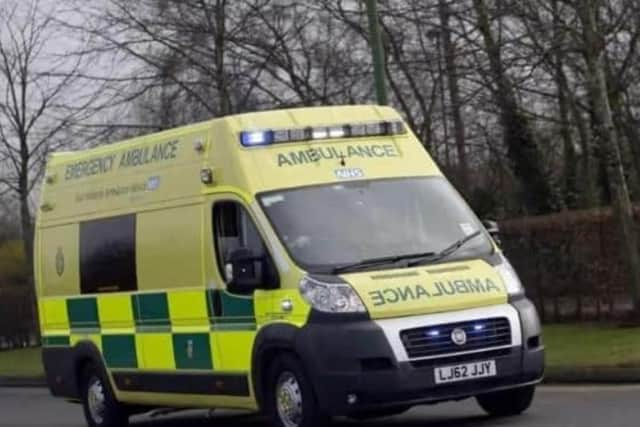Military being brought in to help ambulance service during latest strikes
and live on Freeview channel 276
Industrial action is planned to take place at EMAS on Monday and Tuesday, February 20-21, with members of the GMB and United unions both taking part.
Unlike on previous strike days, demand on the service remained high on the last strike period between February 6 and 7.
Advertisement
Hide AdAdvertisement
Hide AdTherefore, military personnel will provide support responding to non-emergency patients during strike action, thus protecting the limited number of ambulances available to attend to the most seriously ill people in the region.


Ben Holdaway,EMAS director of operations, said: “We expect the industrial action period next week to be very challenging, and the implementation of military support has always been part of the NHS plans in case of increased and sustained pressure.
“At EMAS, we are expecting up to 20 military colleagues to be available to us.
“They will not be used to respond to emergency 999 calls.
“Their role will be to drive vehicles in addition to the safe moving and handling of lower acuity patients and essential equipment.
Advertisement
Hide AdAdvertisement
Hide Ad“This will enable our emergency crews to focus on responding to life-threatening and very serious 999 calls.
“As we head towards the weekend, the NHS remains open and people who become unwell or injured should still seek early advice from their local pharmacist, NHS111 Online, their GP or urgent treatment centre.
“If you have a long-term condition, ensure you continue to take your routine medication as advised by your GP.
“While we continue to fully respect the right of NHS staff to take lawful and peaceful action, as an ambulance service, the most important thing for us is that we are able to provide emergency care to our patients when they need it.
Advertisement
Hide AdAdvertisement
Hide Ad“It is important that the public use services wisely and make their own way to a treatment centre or hospital if safe to do so; this allows us to send our ambulances with life-saving equipment and clinicians on board to people who really need them.”
EMAS said it is important patients who need urgent medical care continue to come forward, especially in emergency and life-threatening cases.
GP services are not impacted by this strike action so please continue to attend your GP appointments, unless you are contacted and told otherwise.
If you need medical help or advice, go to NHS 111 online unless it is a life-threatening emergency, when you should still call 999.
Advertisement
Hide AdAdvertisement
Hide AdAmbulances will still be able to respond in these situations, but this may only be where there is an immediate risk to life, while 999 call handlers will be able to advise callers if it is safe for the patient (with support of relatives or friends when required) to make their own way to a treatment centre or hospital.
There will be fewer ambulances on the roads during industrial action, with the NHS prioritising those with life-threatening needs.
Therefore, patients whose condition is not life-threatening are unlikely to get an ambulance on strike days.
During strike days, NHS 111 call centres will also have fewer staff, with longer call response times expected across the system.
Anyone with a non-urgent care need is asked to seek help from the NHS 111 online here.
